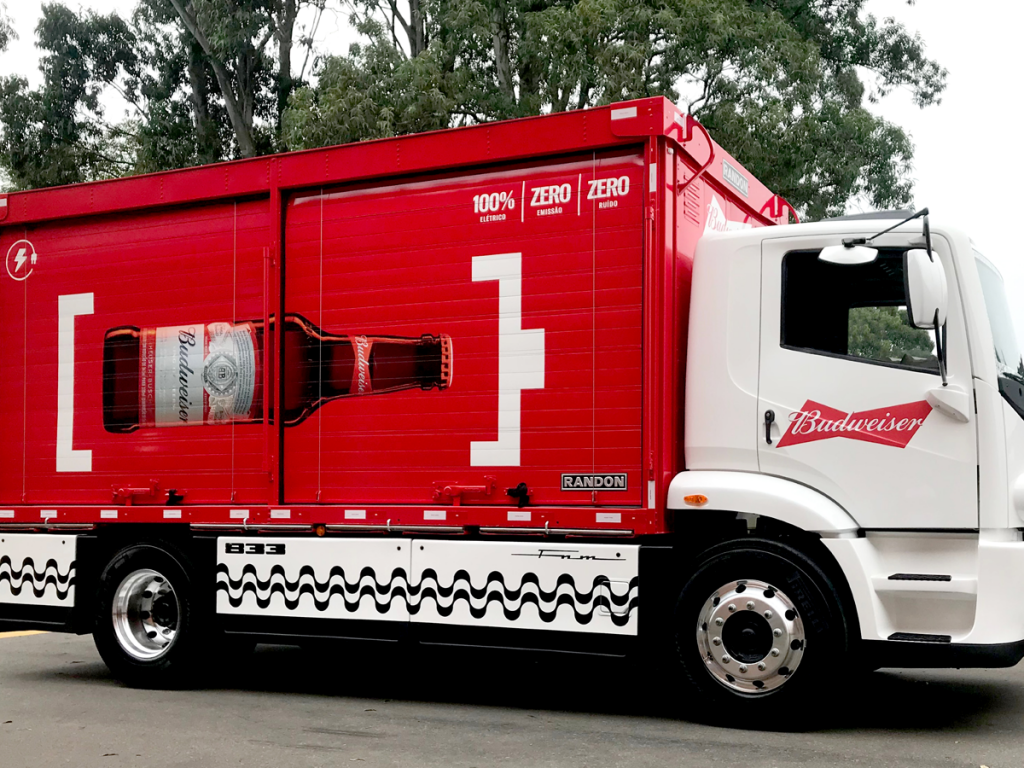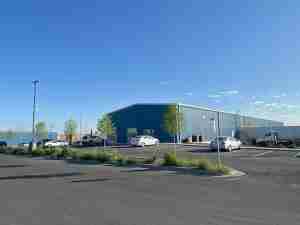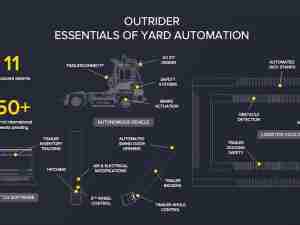All beverages to be delivered via silent and sustainable transport
Battery maker Octillion Power Systems today announced it will supply advanced lithium-ion batteries to Brazilian manufacturer FNM (Fábrica Nacional de Mobilidades) for the production of 1,000 electric trucks for beverage maker Ambev.
FNM will produce 16-ton electric trucks, developed in full collaboration with Agrale, to be used by Ambev to deliver beverages throughout South America. A subsidiary of Anheuser-Busch InBev, Ambev announced that it will deploy the 1,000 electric delivery vehicles by the end of 2021.
“Ambev's order sends a strong signal that fleet electrification has arrived globally,” said Paul Beach, president of Octillion Power Systems, a Tier 1 battery supplier based in Northern California. “Commercial electric vehicles now have a total cost of ownership that is roughly the same as diesel vehicles, and that’s leading to their mass adoption.”
FNM recently entered into a contract of technical and industrial cooperation with Agrale, the only 100 percent Brazilian vehicle manufacturer. Agrale has been on the Brazilian and international market for nearly 60 years. As a part of this launch, they are partnering with FNM and Ambev to invest in clean technologies for fleet vehicles.
"We are thrilled to a part of the overall team that is working to introduce FNM’s new electric trucks,” Beach said. “The beer and beverage markets are the first of many sectors that will deploy EVs.”

FNM was formed in late 2019 and has its headquarters in Rio de Janeiro. FNM opened its EV factory inside Agrale's manufacturing facility in Caxias do Sul city in southeast Brazil. This joint effort leverages Agrale's existing fully integrated, mass-production line for commercial vehicles, with a capacity to produce 150 to 200 trucks per day.
FNM does not sell trucks, but they do sell logistic solutions with a positive total cost of ownership. FNM is a 100 percent ESG (Environmental, Social and Corporate Governance) startup with sustainable and non-pollutant mobility products, designed to meet the needs of companies that wish to improve the environment with great social impact.
The FNM's electric drivetrain integration line is being woven seamlessly inside of Agrale's production line to ensure a fast ramp up. The collaborative effort will produce the FNM model 832, a Class 6 truck with up to 14-ton capacity, and the FNM model 833, a Class 8 truck with an 18-ton payload capacity. Future plans include electric buses, vans and tractors.
FNM, also known as "FêNêMê", was one of the finalists in the first edition of the Ambev Aceleratora 100+ program, in 2019, with this electric truck project. Since then, the companies have been working together on innovations and state-of-the-art technologies that aim to deliver sustainable and efficient solutions both for Ambev's own logistics program and also for other local and international clients.
The FNM 833 is being deployed by Ambev. It features Octillion's 650-volt battery and and Danfoss Editron's drivetrains. The new truck will be able to travel up to 700 kilometers between charges. “Our unique battery solution allows for a scalable design that can be configured in various models using a single technology platform,” Beach said.
Ambev has stated that it wants at least half of its Brazilian fleet to operate on clean energy by 2023. The brewing company has more than 7,000 trucks in its Brazilian fleet, which are used to distribute beer and other beverages across Brazil, South America's largest economy. Each of the model FNM 833 electric trucks will represent a reduction of 126,000 kilos of CO2 emitted into the atmosphere per year.
FNM was founded in 1942 and was the first truck manufacturer in Brazil. The company was privatized in 1968 by the military government, and later bought by Fiat, who closed the factory in 1988. In 2008, the Obvio ! automotive company acquired the FNM name and logo rights and started developing electric trucks.
FNM's trucks use niobium in various components – such as the chassis, brakes, suspension, wheels, and certain other parts and structural elements – to reduce the vehicle's weight and increase its strength, performance, and range. FNM says their trucks telematics systems will connect to customer’s information technology systems, as well as to the factory, to provide real-time efficiency and safety data.
Octillion's modular, high-energy density batteries are cooled by chilled water. At the end of their 10-year service life in the trucks, the battery modules do not need to be recycled, since they can be repurposed for other uses, such as for storage for large solar arrays.
Using a Wallbox charger with a CCS2 outlet the trucks can be fully recharged in up to four hours. The Wallbox is connected to 380-volt charger inside Ambev's distribution centers, which are located all over Brazil and already operate with solar power.
The FNM truck is connected to the Ambev IT system, which delivers real-time information on the route and the performance for the company's monitoring area, together with information on the traffic, routes and specific characteristics of the various clients. The vehicle is also equipped with new technologies that are focused on safety, including an anti-collision system with artificial intelligence and integrated cameras.
Danfoss Editron's drivetrain systems will power the FNM 833. The systems feature a 250-kW motor with an Eaton multi-speed transmission, Octillion's battery, and 355 horsepower. They are also fitted with a digital avionics controller and inverter to enable the intelligent management of all the vehicle's operations.
“We believe these innovative vehicles will boost the electric truck market and help Brazilian companies to realize economic growth with clean and silent fleets, saying so long to diesel trucks,” Beach said. “FNM and Ambev have incredible histories, and it is a privilege to be able to help them write the next chapter with these advanced clean vehicles.”







